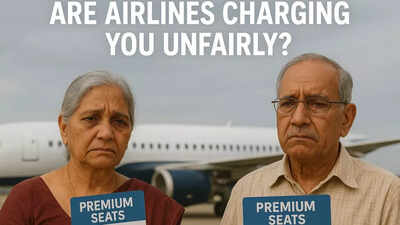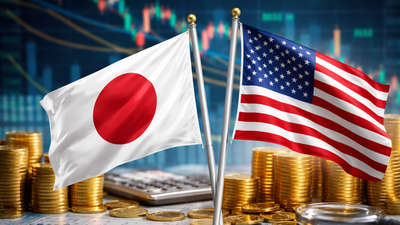Airline unfairly charged passengers for premium seats when free were available – elderly couple file complaint & win compensation; what ruling means for you

Are airlines misleading you on availability of free seats? When booking an air ticket, be careful when you pay an extra amount for premium seats – free seats of your choice may be available. In one such case, a Navi Mumbai couple, Dr. and Mrs. Nandy, were misled by a private airline into paying ₹7,200 for seat reservations on a Mumbai–New York flight, even though free seats were available. The won the case and the Maharashtra State Consumer Disputes Redressal Commission upheld a lower court order that found the airline guilty of unfair trade practice and deficiency in service.
Airline charging for premium seats: What led to the complaint
According to an ET report, the couple had booked round-trip tickets from Mumbai to New York via Dubai for August 26, 2017, with a return on September 15. During booking, they noticed that many seats were already crossed out. Dr. Nandy, who suffers from diabetes and high blood pressure, required his wife’s assistance during travel, so they needed two adjacent seats.When they contacted the airline, they were informed that only a limited number of free seats were available and would be assigned 48 hours before departure. The airline could not confirm whether those free seats would be next to each other. The airline suggested they reserve their preferred seats through web check-in.Taking the advice, the couple paid ₹7,200 to secure adjacent seats. But upon reaching the airport, they discovered that several passengers had received seats for free. Feeling misled, they filed a complaint with the Consumer Commission, alleging that the airline had concealed information and unfairly induced them to pay.Also Read | Husband missing for over 7 years: How wife won a case in Chhattisgarh High Court to get central government pension – ruling explainedDistrict Commission’s orderIn October 2020, the District Commission ruled in the couple’s favour, the report said. The airline was directed to refund the ₹7,200 seat fee with 6% interest from October 5, 2017, until the date of the order. It also ordered an additional ₹5,000 as compensation for mental agony and ₹3,000 towards litigation costs.The airline challenged the order before the Maharashtra State Consumer Commission.What the Maharashtra State Consumer Commission saidOn September 25, 2025, Justice S.P. Tavade, president of the State Commission, upheld the district ruling and dismissed the airline’s appeal. The Commission said the airline had followed a “dark pattern”—a manipulative design practice that misleads consumers into making unintended choices.According to the Commission, the airline failed to provide adequate and accurate information about the availability of free seats. By doing so, it deprived passengers of the opportunity to make an informed decision.The order stated: The complainants were kept in the dark and were not provided proper and correct information regarding availability of free seats; thus, they pre-booked the seats by spending money for the same.Also Read | Landlord vs tenant eviction case: Supreme Court rules in favour of landlord despite tenant’s son not signing rent receipts – here’s what the ruling meansPassengers ‘Impliedly forced’ to pay extra by airlineThe Commission noted that although there was no direct evidence showing that the airline forced the couple to pay, the circumstances implied pressure. Since Dr. Nandy was unwell and required his wife’s assistance, they felt compelled to pre-book adjacent seats.It can be said that impliedly the complainants were forced to pre-book seats by paying the charges, though free tickets were available, the order said according to the ET report.The bench observed that the airline could have allotted seats during booking or clearly disclosed which ones were free. Instead, it kept the couple unaware of those details, effectively nudging them to pay extra.Failure to inform passengersThe Commission said the airline had admitted that free seats were indeed available 48 hours before the flight, yet it failed to notify the complainants. The panel stated that it was the airline’s duty to disclose both paid and free seat options upfront.It added:The Opposite Party (airline) did not inform the complainants about the free seats available on the flight. Therefore, they sought to pre-book their seats and spent ₹7,200.”Definition of ‘dark pattern’ citedThe judgment referred to the official definition of dark patterns:Any practices or deceptive design patterns using UI/UX (user interface/user experience) interactions on any platform, designed to mislead or trick users to do something they originally did not intend or want to do; by subverting or impairing the consumer autonomy, decision making or choice, amounting to misleading advertisement or unfair trade practice or violation of consumer rightsBy withholding accurate information, the airline’s actions fit this definition, the Commission said. It held that such behaviour violated consumer rights and caused mental distress.Also Read | Income Tax department doubts Rs 10 lakh gift – brother gets tax notice for cash received from sisters; how he appealed & won the caseFinal rulingJustice Tavade upheld the district commission’s finding, stating:“The complainants were forced to pre-book their seats though free seats were available, which caused mental trauma and agony. Such practice is both an unfair trade practice and a violation of consumer rights.”The appeal (No. A/2021/15) was dismissed, and the earlier order was confirmed in full. Both parties were given a copy of the judgment free of cost.
What does the ruling mean for you
Legal experts said the ruling strengthens passenger rights by holding airlines accountable for transparent pricing.
- Naman Singh Bagga, Partner at C&S Partners, told ET that the judgment promotes consumer transparency and discourages subtle online nudging.
- Aditya Chopra, Managing Partner of The Victoriam Legalis, said it reinforces that airlines cannot mislead passengers through hidden design tactics and that consumers must stay alert to avoid “dark patterns” while booking.
The case highlights that passengers are entitled to clear, upfront information about all seat options. Any attempt to conceal free choices or push premium options without disclosure can be challenged as an unfair trade practice.The ruling also underscores a broader message: airlines must not rely on confusing design tactics that compromise a traveller’s right to informed consent.Also Read | Six years after receiving salary arrears, retired employees were told to repay the entire amount – until this Supreme Court ruling changed everything






